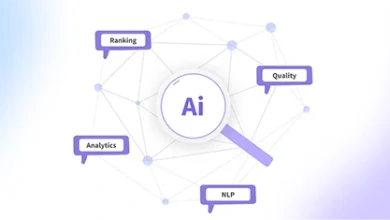Customer Relationship Management, or CRM, has been a pivotal component of businesses across industries. Its emergence in healthcare now marks a revolution in patient care and administrative efficiency. With the growing complexities and demands of the healthcare industry, CRM has become a crucial tool for medical professionals to streamline operations and enhance patient experience.
In this comprehensive guide, we will explore the role of CRM for Healthcare and its impact on transforming patient care. We will also discuss how CRM can maximize efficiency in healthcare and personalize patient care. This guide aims to provide medical professionals with an in-depth understanding of CRM and its potential to revolutionize healthcare management.
The Emergence of CRM in Healthcare
Traditionally, the focus of healthcare providers has been purely medical care; however, the shift towards value-based care has magnified the need for patient-centric services. The emergence of CRM for Healthcare is a direct response to this need. By leveraging the power of CRM, healthcare providers can gain better insights into patient behavior, enable personalized patient engagement, and streamline operations.
Understanding CRM in the Context of Healthcare
CRM, at its core, is a strategy for managing an organization’s relationships and interactions with customers and potential customers. In the context of healthcare, CRM is a tool that aids in managing relationships with patients by leveraging data to improve patient satisfaction, engagement, and health outcomes.
CRM integrates into healthcare by providing a platform for managing patient interactions, tracking patient information, scheduling appointments, and managing billing information. It also aids in the seamless sharing of information across different departments of a healthcare organization.
The Significance of CRM in Healthcare
The incorporation of CRM for Healthcare brings about a pivotal enhancement in the patient experience. It facilitates personalized care by providing healthcare professionals with the necessary information about the patient’s medical history, preferences, and needs. Moreover, CRM aids in streamlining operations and management by automating administrative tasks, thereby increasing efficiency and reducing the scope for errors.
Key Benefits of CRM in Healthcare:
- Enhanced Patient Experience: CRM systems provide a unified platform for patient data, enabling healthcare professionals to offer personalized care based on the patient’s medical history and preferences.
- Streamlined Operations: By automating administrative tasks, CRM reduces the scope for errors and increases efficiency, allowing healthcare providers to focus more on patient care.
- Improved Communication: CRM facilitates seamless sharing of information across different departments, improving collaboration and communication within the healthcare organization.
- Data-Driven Decision Making: With CRM, healthcare providers can leverage data to gain insights into patient behavior and make informed decisions that ultimately enhance patient satisfaction and health outcomes.
- Optimized Appointment Scheduling: CRM systems enable efficient management of appointments, reducing patient wait times and enhancing the overall patient experience.
Best Practices for Implementing CRM in Healthcare
Implementation of CRM in any organization requires careful planning and execution. This begins with identifying organizational needs which might include improving patient satisfaction, streamlining operations, or improving patient retention. Once the needs are identified, the next step is selecting the right CRM software that aligns with these needs. Finally, training the staff for CRM adoption is crucial to ensure its effective use.
- Identifying Organizational Needs: The first step in implementing CRM for Healthcare is identifying the organizational needs. These might range from improving patient satisfaction to streamlining operations or enhancing patient retention.
- Selecting the Right CRM Software: Once the needs are identified, the organization should diligently select the right CRM software that aligns well with these needs. An ideal CRM software should cater to the specific requirements of healthcare institutions, ensuring seamless management of patient interactions and data.
- Training the Staff: After the right CRM software is in place, it is crucial to train the staff for CRM adoption. This will ensure its effective use and help the organization in leveraging the tool to its full capacity.
- Continuous Evaluation and Improvement: Post-implementation, the effectiveness of the CRM should be regularly evaluated to identify areas of improvement. Feedback from staff and patients can provide valuable insights for the refinement and optimization of the system.
The Future of CRM in Healthcare
The future of CRM lies in its ability to adapt to the ever-evolving healthcare landscape. Predicted trends include AI-integrated CRM for Healthcare predictive analysis and personalized patient care, mobile CRM for better accessibility, and social CRM for improved patient engagement. To stay ahead in the game, healthcare providers must keep abreast with these trends and continuously adapt their CRM strategies.
- AI-Integrated CRM: Artificial intelligence and machine learning can enhance CRM’s predictive analysis capabilities. This could help healthcare providers anticipate patient needs and proactively provide personalized care, thus improving patient satisfaction.
- Mobile CRM: With the growing prevalence of smartphones, CRM’s adaptability to mobile platforms is becoming increasingly important. Mobile CRM provides healthcare professionals with real-time access to patient data, appointment schedules, and communication tools, thereby improving efficiency and patient engagement.
- Social CRM: In the era of social media, CRM can leverage these platforms for better patient engagement. By monitoring and responding to patient feedback on social media, healthcare providers can improve their services and enhance their reputation.
- Continuous Adaptation: The healthcare landscape is continuously evolving. To stay competitive, healthcare providers must constantly update their CRM strategies in line with the latest trends and advancements. A forward-looking approach to CRM can significantly improve a healthcare provider’s ability to provide top-notch patient care.
Conclusion
CRM for Healthcare is poised to bring about a transformative shift in patient care and operational efficacy. As providers in the healthcare sector move towards a model of value-based care, CRM for Healthcare emerges as a strategic tool that can facilitate the realization of this objective. Hence, it becomes crucial for healthcare providers to not only comprehend but also harness the potential power of CRM for Healthcare.
With its capacity to forecast, compatibility with mobile and social media platforms, and relentless adaptation, CRM for Healthcare is instrumental in elevating patient satisfaction and improving healthcare results. Therefore, for healthcare professionals aiming to enhance patient engagement and operational efficiency, investing in a robust CRM for Healthcare system is an astute move. So, why hesitate? Begin your exploration of CRM for Healthcare options today!




